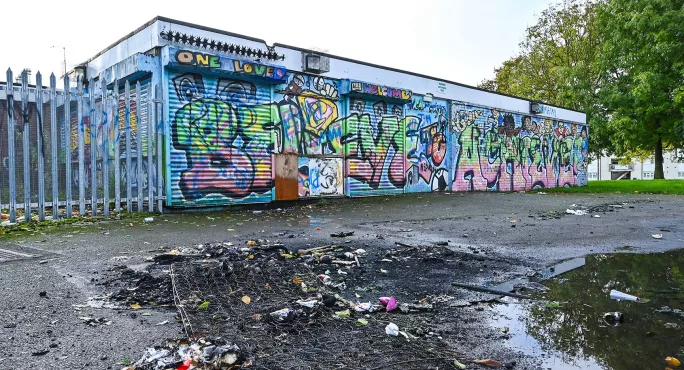Youth club closures affected GCSE results, think tank warns

Headteachers’ leaders have urged the government to invest in community services as new research has been published claiming that youth club closures have led to poorer GCSE results.
Teenagers whose nearest youth club was closed went on to do worse in school, according to a research paper by the Institute for Fiscal Studies (IFS).
The study published today found that London students who lost access to a nearby youth club performed three to four per cent worse in their GCSEs than their peers in areas of the capital where clubs did not close.
The IFS says converting this into an impact on GCSE grades is complicated by the exam reforms of the mid-2010s, but said it was roughly equivalent to a decline of half a grade in one subject.
LA funding cuts ‘hugely damaging to young people’
The effects were more severe for disadvantaged pupils - defined by the report as those entitled to free school meals. Their test scores fell by almost 12 per cent, which the IFS says corresponds roughly to doing more than a grade worse in one subject.
The report also found that youth club closures led to an increase in offending rates.
- Offending: Crime ‘hotspot’ schools to get county line gang support
- GCSEs: How much does attendance really affect GCSE results?
- Funding: Warning of job cuts due to ‘fragile’ council finances
The IFS says around 30 per cent of youth clubs in London closed between 2010 and 2019 as a result of cuts to local authority funding.
In June, research by Unison found more than 42 per cent of councils in England and Wales no longer operated their own youth centres. The union found 1,243 council-run youth centres closed from 2010 to 2023, with just 581 centres still in operation at the end of March last year.
The IFS suggests that when youth clubs closed, children had few or no alternative structured after-school activities available to them. The loss of youth clubs led to significant declines in educational performance, with teenagers in affected areas performing three to four per cent worse in their GCSEs.
Pepe Di’Iasio, general secretary of the Association of School and College Leaders, said youth clubs can play an important role in supporting development and providing a safe space outside of school, and “the major cuts to local authority funding over the last decade have been hugely damaging for children and young people”.
“Funding cuts have led to the closure of community centres and Sure Start Children’s Centres, as well as youth clubs, and reduced the capacity of local services to support attendance, mental health and children with special educational needs.”
‘Savings outstripped by problems down the line’
“The most frustrating thing, as this report points out, is that the savings made as a result of these cuts are typically outstripped by the additional problems created down the line. These short-sighted decisions often leave school and college leaders to pick up the pieces. The new government has got to learn the lessons of what happens when local authorities and public services do not have the funding they need to function properly,” he adds.
And Paul Whiteman, general secretary of the NAHT school leaders’ union, said the closure of youth clubs has meant the loss of huge benefits for the young people that attend, including community, and mentoring programmes.
He said cuts to those services that support schools under previous governments, such as youth clubs and other community services, end up having a direct impact on pupil outcomes.
“Over the course of the next Parliament, leaders and teachers are committed to working with the new administration in rebuilding the crucial services that support vulnerable pupils,” Mr Whiteman added.
The IFS report was published today as the government announced an £85m fund to create new youth spaces as part of a new National Youth Strategy. Culture Media and Sport Secretary Lisa Nandy told the House of Commons that the government would launch a new co-produced strategy next year” that is fit for the decade ahead and ensures every young person can live the richer, larger life they deserve”.
Ms Nandy told the House: “We recognise the urgent need for young people to have welcoming places that they have a stake in. That is why, in the next financial year, my department will allocate over £85 million of capital funding to places where it is most needed. That includes launching the new better youth spaces fund, with at least £26 million for youth clubs to buy new equipment and do renovations. We will also complete the youth investment fund projects that are under way. True to our commitment to putting young people back in charge of their own destinies, we will ensure that they guide our decisions when we choose the spaces to support.”
For the latest education news and analysis delivered every weekday morning, sign up for the Tes Daily newsletter
Keep reading for just £1 per month
You've reached your limit of free articles this month. Subscribe for £1 per month for three months and get:
- Unlimited access to all Tes magazine content
- Exclusive subscriber-only stories
- Award-winning email newsletters
topics in this article



